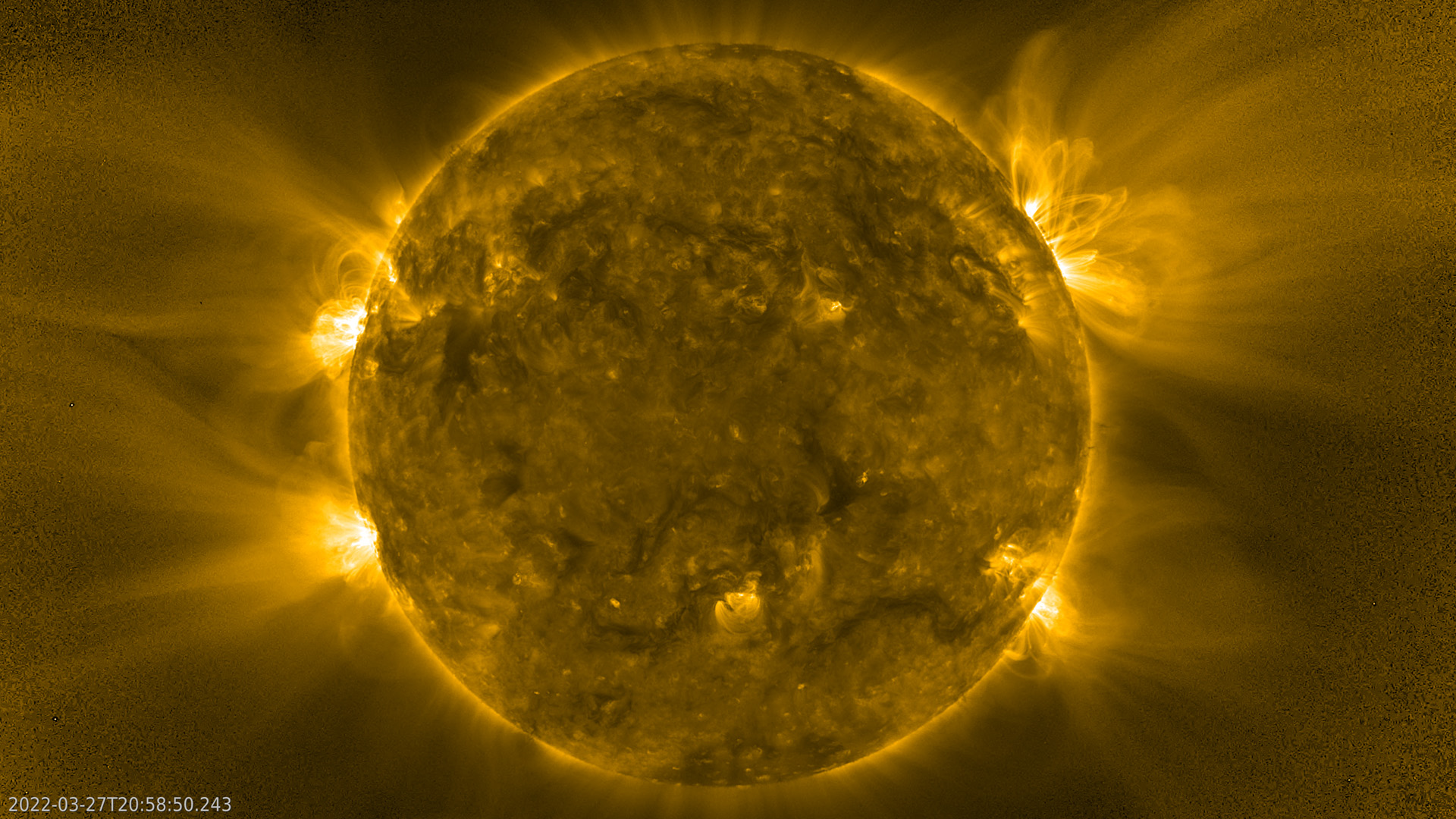Japan may delay its Mars moon sampling mission MMX due to rocket problems
JAXA needs to get its H3 rocket flying successfully early next year
Japan’s ambitious mission to explore the two mini moons of Mars could be facing a lengthy delay.
The Japan Aerospace Exploration Agency’s (JAXA) Martian Moons eXploration (MMX) is scheduled to launch in September 2024, taking advantage of a once-every-26-months launch window to the Red Planet.
Arriving in Mars orbit in August 2025, coinciding with the World Expo in Osaka, MMX would attempt landings on Phobos to collect a minimum 0.35 oz (10 grams) of samples. It would then make flybys of the smaller moon Deimos before a module containing the samples is sent back towards Earth, arriving in 2029.
Related: New Japanese spacecraft aims to explore the mysterious moons of Mars
However the agency’s new H3 rocket, which will launch MMX, failed on its debut flight in March. JAXA stated last month that it is aiming to attempt a second launch of the flagship H3 rocket by the end of March next year, NHK reported.
The outcome of that mission—which will benefit from lessons learned and measures taken after the failure—will likely determine if MMX can launch on schedule.
Further issues would see MMX delayed to late 2026. However rescheduling the mission may prove challenging, as a number of high priority launches will complicate matters, Kyodo News reports.
Get the Space.com Newsletter
Breaking space news, the latest updates on rocket launches, skywatching events and more!
It is unknown if JAXA would consider using another launcher, such as the SpaceX Falcon Heavy, to launch MMX.
When it does launch, MMX aims to determine if Phobos and Deimos are captured asteroids or fragments that coalesced after a giant impact with Mars. It will also gain new insights into the history of Mars.
The mission will also carry a small rover for exploring Phobos, developed by the German Aerospace Center (DLR) and the French Center National Space Research (CNES).
Join our Space Forums to keep talking space on the latest missions, night sky and more! And if you have a news tip, correction or comment, let us know at: community@space.com.

Andrew is a freelance space journalist with a focus on reporting on China's rapidly growing space sector. He began writing for Space.com in 2019 and writes for SpaceNews, IEEE Spectrum, National Geographic, Sky & Telescope, New Scientist and others. Andrew first caught the space bug when, as a youngster, he saw Voyager images of other worlds in our solar system for the first time. Away from space, Andrew enjoys trail running in the forests of Finland. You can follow him on Twitter @AJ_FI.









